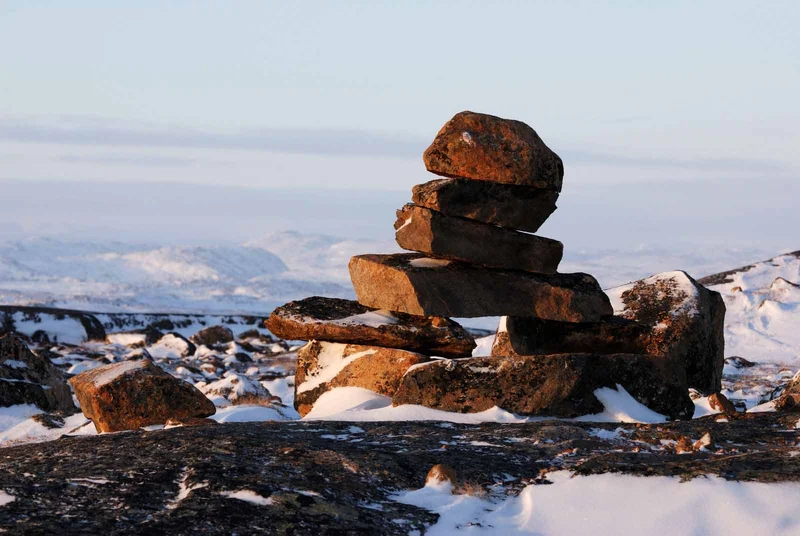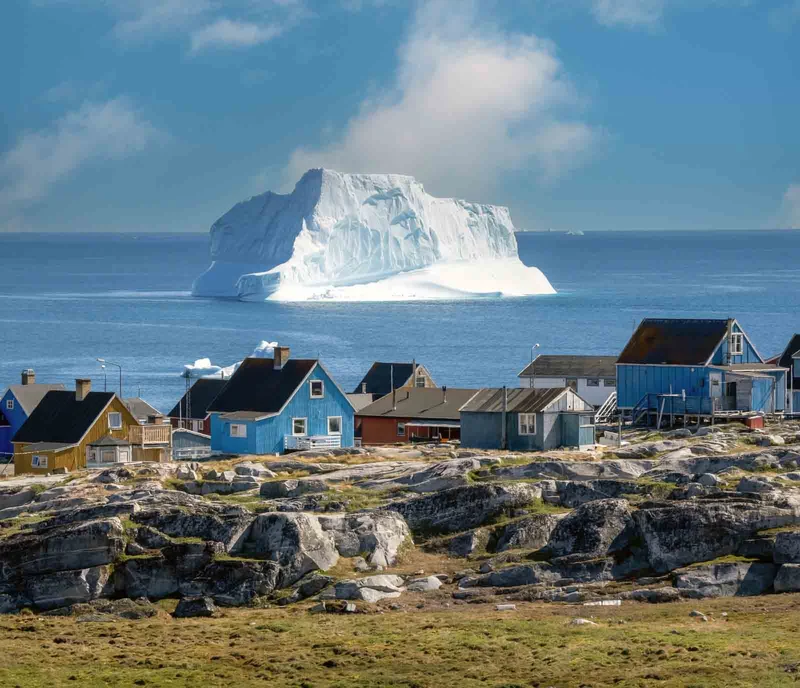
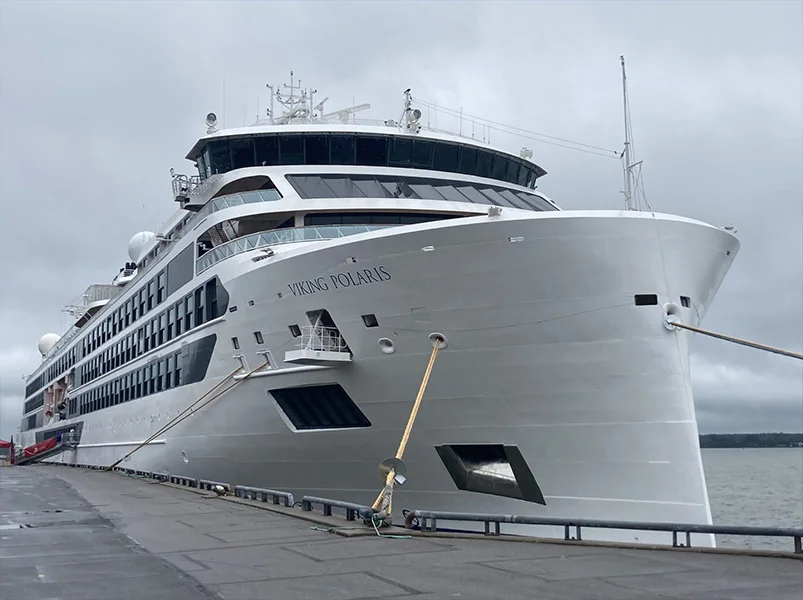
From the Americas to the Far South
Embark on an unforgettable voyage through the Americas, where you'll witness the breathtaking ice fields of Patagonia and marvel at the engineering marvel that is the Panama Canal. Discover historic cities, immerse yourself in vibrant cultures, and enhance your experience with optional excursions to the Galápagos Islands and Machu Picchu. Experience the untouched beauty of Antarctica, often called "the Last Continent," as you explore its serene, awe-inspiring landscapes on this extraordinary adventure.
47 Day Antarctica Itinerary
Day 1: Ft. Lauderdale, Florida, United States
Embark your ship and settle into your stateroom. A beloved leisure destination for Floridians and visitors alike, the Ft. Lauderdale area exudes the carefree attitude of South Florida’s coast. In Miami, a thriving Cuban culture infuses Old Havana and gleaming high-rises overlook Biscayne Bay. On the outlying barrier islands, South Beach is an intoxicating blend of seaside glamour and art deco pastel brilliance. Farther north, the seven-mile-long Ft. Lauderdale Beach provides a more leisurely ambience. Along Las Olas Boulevard, cafés and boutiques invite lingering and endless browsing.
Day 2: Sail the Gulf of Mexico
The Gulf of Mexico has been a witness to much of the history of North and Central America. In 1497, Amerigo Vespucci was purportedly the first European to sail into the gulf’s basin, charting its coast and changing the world map. Renew your body, mind and spirit in the Scandinavian-inspired Spa, a Nordic sanctuary of holistic wellness, today while at sea. Whether you unwind in the Sauna, refresh in the Snow Grotto or take a dip in the Thermal Pool, you will feel recharged and revitalized.
Day 3: Cozumel, Mexico
The island of Cozumel holds the keys to many of the most intriguing secrets of Mexico’s ancient civilizations. At San Gervasio, pre-Columbian women made offerings to Ix Chel, goddess of the moon and fertility. More recently, the Spanish left marks of their early presence in the colorful colonial architecture and lively traditions of San Miguel and at the scenic lighthouse at Punta Sur. Today, this island off Mexico’s Yucatán Peninsula attracts as many snorkelers as it does history buffs; the Cozumel Reefs National Marine Park is the world’s second-largest coral reef system.
Day 4-5: Sail the Caribbean Sea
Sail through turquoise waters where legends of marauding pirates, swashbucklers and tales of hidden treasures were born. As you sail today, relax in the Explorers’ Lounge, inspired by epic journeys of discovery. Marvel at the views through the two-story panoramic windows as you share a cocktail with friends, or settle down to read a book.
Day 6: Scenic Sailing: Panama Canal
The Panama Canal connects the Pacific and Atlantic Oceans, crossing the narrowest stretch of the Isthmus of Panama. A full transit through the 48-mile-long canal takes around eight to ten hours and passes through the Gatun Lake and the Culebra Cut, an artificial valley that runs through the Continental Divide. An engineering marvel of the 20th century, the crossing passes through a series of locks that lift and lower ships 85 feet from sea level, guided by electric locomotives known as mulas. The Panama Canal transit is a rite of passage and a truly memorable experience.
Day 7: Panama City (Fuerte Amador), Panama
Panama City is a gleaming city of high rises on the Pacific and gracefully blends new and old. At once a rousing tribute to international finance and a rich reminder of a colonial past, it is Central America’s unparalleled cosmopolitan center. The atmospheric Old Town, the Casco Viejo, straddles a peninsula and hosts some of the nation’s most prized cultural and historic treasures, including churches, palaces and plazas. Nearby, one of the world’s greatest engineering feats, the Panama Canal, conveys ships along its 48 miles to the Caribbean Sea.
Day 8: Sail the Pacific Ocean
Sail Mar Pacífico, meaning “peaceful sea,” dubbed by Ferdinand Magellan when he crossed these waters almost 500 years ago. Admire the views as you sail today and enjoy an al fresco dining experience. The Aquavit Terrace serves a wide range of international dishes and casual favorites, as well as a variety of destination-inspired cocktails.
Day 9: Manta, Ecuador
Manta has long been closely linked to the rhythms of the sea. The city boasts the largest seaport in Ecuador and a bustling fish market brimming with sea bass, tuna and countless other delicacies. Local Manabita fare is a celebrated gastronomic tradition and considered by Ecuadorians to be one of their country’s finest cuisines. Founded as a pre-Columbian trading post known as Jocay, the city is also recognized for its heritage with craft exhibits. But the craft scene really thrives in nearby Montecristi, renowned for its intricate wickerwork and original Panama hats.
Day 10-11: Sail the Pacific Ocean
Traverse the world’s largest ocean, which covers almost 64 million square miles. At twice the size of the Atlantic, the Pacific is an ocean of extremes. Soak up the views from the Finse Terrace, a unique outdoor lounge area named after a famous mountain plateau in south-central Norway. Relax amid your surroundings in comfort, with heated couches and lava rock “firepits,” allowing you to enjoy the outdoors no matter the temperature, as you admire the dramatic scenery or expansive ocean vistas.
Day 12: Lima (Callao), Peru
Lima was founded in 1535 by Francisco Pizzaro as La Ciudad de los Reyes, or “City of Kings.” It soon grew into the capital of Spain’s Viceroyalty of Peru and established the oldest university in the Americas, the National University of San Marcos. One of the most cosmopolitan cities in South America, Lima's extravagant collection of architecture spans the centuries: early colonial, Spanish baroque, neoclassical and Art Nouveau buildings all adorn the cityscape. The historic center, graced with hundreds of balconies built during the viceroyalty era, is a UNESCO Site.
Day 13-14: Sail the Pacific Ocean
Sail the Pacific Ocean, its vast expanse of waters covers more than 30 percent of the Earth’s surface and touches the continents of Asia, Australia, North and South America. Linger on the Sun Deck of your veranda for vistas of azure and turquoise as you sail through some of the world’s most beautiful waters. Perhaps you will take a dip in the Infinity Pool or stroll the Promenade Deck.
Day 15: Iquique, Chile
Iquique enjoys a scenic locale between the Pacific Ocean and the Pampa del Tamarugal, a vast plateau within the Atacama Desert. This bustling city was once part of Peru and grew prosperous from saltpeter mining. It was ceded to Chile in 1883 after the War of the Pacific. Today, Iquique boasts many architectural treasures around its central Arturo Prat Square, from the stately Municipal Theater and the elegant Casino Español to a Gothic and Moorish-style Clock Tower. The city’s well-preserved Georgian-style homes are a picturesque legacy from the 19th-century mining boom.
Day 16-17: Sail the Pacific Ocean
Cross the Pacific Ocean and learn about its fascinating geology, with more than 75,000 volcanoes—many still active—reaching up from its depths. Spend a relaxing day at sea to unwind and admire the vistas from your stateroom veranda.
Day 18: Santiago (Valparaíso), Chile
Chile’s modern capital of Santiago is one of the largest cities in the Americas. Its impressive neoclassical, neo-Gothic, art deco and other architecture spans several centuries. Santiago’s gateway, Valparaíso, is often compared to San Francisco for its many cerros, or hills. The city prospered as a major port until the opening of the Panama Canal rendered it unnecessary. Quaint Victorian-era architecture recalling its 19th-century affluence and steeply sloped barrios are linked by ascensores, or funiculars, and winding byways. From Los Cerros, the views are spectacular.
Day 19: Sail the Pacific Ocean
The Pacific Ocean may have been officially discovered in 1521, yet early civilizations have been traversing these waters since 3000 BC. Enjoy the amenities of your ship as you sail. Perhaps take a breath of fresh air on a brisk walk around the Promenade Deck or begin your day with a workout in the well-equipped Fitness Center.
Day 20: Scenic Sailing: Chilean Fjords
A pristine paradise of soaring peaks, countless lush islands teeming with wildlife and a tapestry of glaciers and rivers spilling into shimmering waters, the fjords of Chile are heralded as one of the most rugged and untamed places on earth. The crystal waters are a breathtaking sight as they journey through vast ice fields, towering mountainsides and serene fishing villages that hug tranquil shores against backdrops of dramatic forested hills.
Day 21: Puerto Chacabuco, Chile
Puerto Chacabuco is a tiny Patagonian enclave and gateway into the spellbinding beauty of the rugged wilderness. The port was named for the 1817 Battle of Chacabuco, a pivotal moment during the Chilean War of Independence, in which national hero José de San Martín of the Army of the Andes defeated the royalist forces. Jagged rocky peaks with deep-cut gorges, icy-blue glaciers spilling into the sea and pine-green forests clinging to steep slopes dominate this untouched region, one of the most inspiring and breathtaking corners of the globe.
Day 22: Scenic Sailing: Chilean Fjords
The fjords and channels of Chile were first inhabited by indigenous people who used the wood of the endemic Pilgerodendron uviferum, a conifer tree, to build their canoes and homes. Spanish conquistadors began exploring the region during the mid-16th century, navigating the fjord’s internal passageways to avoid the heavy seas and bad weather of the Pacific Ocean. The harsh climate and declining local populations limited colonial expansion, leaving the fjords sparsely populated—a situation that continues to this day.
Day 23-24: Explore Chilean Glaciers
The gigantic Patagonian Ice Sheet covered southern Chile in a thick blanket of ice and snow during the last Ice Age. Around 12,000 years ago, rising temperatures caused it to begin melting, carving out the Patagonian landscape as it receded. Today, two vast sections, northern and southern, remain of this ancient ice sheet. Together, they cover more than 5,400 square miles and form the third largest frozen landmass on Earth. At their edges are towering glaciers of blue-tinged ice, whose ever-changing faces create the large icebergs that float in the fjords and channels.
Day 25: Scenic Sailing: Chilean Fjords
The picturesque Chilean Fjords stretch nearly 1,000 miles from Cape Horn at the South American continent’s southern tip to the Reloncaví Estuary just below the city of Puerto Montt. Carved out by receding glaciers starting more than 2.5 million years ago, the fjords are composed of several hundred channels and passages that wind their way past walls of blue ice, dense forests and steep mountain ranges. Its rugged coastline is home to colonies of Magellanic penguins and lazing elephant seals, while its waters welcome dolphins, migrating humpback whales and orcas on the hunt.
Day 26: Punta Arenas, Chile
Punta Arenas was founded as a penal colony by Chile in 1848. Nestled amid spectacular mountain vistas on the eastern shores of the Brunswick Peninsula, it played host to mariners crossing the continent by ship. Europeans followed, searching for newly discovered gold and establishing vast swaths of sheep farms locally and throughout the surrounding region. Over time, Punta Arenas became one of Chile’s most important ports as, before the opening of the Panama Canal, it laid on the northernmost transcontinental shipping route.
Day 27: Explore Chilean Glaciers
Spanning the border of Chile and Argentina, the Southern Patagonian Ice Field stretches along the spine of the Andes Mountains for more than 200 miles. Chile itself is home to almost 80% of South America’s glaciers, covering an estimated 7,700 square miles. These glaciers act as enormous freshwater reserves for the mountain habitats across Patagonia, helping to sustain the region’s diverse plants and wildlife.
Day 28: Garibaldi Fjord, Chile
The pristine waters of the Garibaldi Fjord weave their way through the Alberto de Agostini National Park in Chile, where the Andes mountain range meets the ocean. The region is a UNESCO Biosphere Reserve and its majestic natural wonders are home to an array of wildlife. Its valley walls are covered with ice and floating icebergs drift along with the bobbing heads of seals and sea lions. The Garibaldi Glacier feeds the waters of the fjord, and this retreating 12 square mile spectacle dwarfs any vessel that passes by.
Day 29: Scenic Sailing: Cape Horn
Rising above the point where the Atlantic and Pacific Oceans converge, Cape Horn, named for the Dutch city of Hoorn in The Netherlands, is part of the Hermite Islands archipelago. This remote, stark and treeless place is often considered the continent’s southernmost point. Soaring from Hornos Island is an enormous prehistoric-looking massif of Jurassic volcanic rock. Atop, stands its historic lighthouse near the water’s edge. A beacon of assurance and safety for countless sailors since 1991, it is the world’s southernmost traditional-style lighthouse.
Day 30: Ushuaia, Argentina
Known as the world’s southernmost city, Ushuaia sits between the Beagle Channel and the rugged Andean foothills, giving it a remote, frontier-like ambiance. It serves as a key departure point for Antarctic expeditions. The city is the capital of Tierra del Fuego, an archipelago named by Spanish explorers who observed the indigenous Yámana people maintaining constant fires for warmth. This largely untouched region includes Tierra del Fuego’s main island along with numerous Chilean and Argentine islets.
Day 31: Sailing the South Atlantic Ocean
Traverse the Mid-Atlantic Ridge, an underwater mountain range extending farther than the Rockies, Himalayas, and Andes combined. Relax at sea, taking in the ocean’s expanse from your private veranda as you enjoy a peaceful day of sailing.
Day 32: West Point Island, Falkland Islands
West Point Island offers some of the most dramatic coastal views, where towering cliffs meet the rolling surf. Established as a sheep farm in 1879 by Arthur Felton, the island remains under the ownership of his descendants. Today, Roddy Napier and his wife, Lily, manage the farm while warmly welcoming visitors. The island is also a designated Important Bird and Biodiversity Area, home to unique species such as the Falkland steamer duck, black-browed albatross, and southern rockhopper and Magellanic penguins.
Day 33: Port Stanley, Falkland Islands
As a British Overseas Territory, the Falkland Islands consist of nearly 800 scattered isles. East Falkland, the main island, is a popular stop for adventurers heading to Antarctica. Visitors experience British hospitality in Port Stanley’s traditional pubs and the quaint Victorian-era stone church. While sheep outnumber residents by roughly 200 to 1, the Falklands are also a sanctuary for wildlife, including five species of penguins, from majestic king penguins to the lively gentoo and Magellanic varieties.
Day 34-35: Sailing the South Atlantic Ocean
Follow the path of legendary explorers, including Captain James Cook, who claimed South Georgia for Britain in 1775. While at sea, enjoy an educational lecture or watch a film on The Aula’s state-of-the-art 8K panoramic screen. With retractable floor-to-ceiling windows, this venue offers an immersive experience that seamlessly blends indoor comfort with breathtaking ocean views.
Day 36-38: Discover South Georgia
South Georgia’s untamed wilderness features rugged mountains, sweeping hills, and awe-inspiring glaciers. First mapped by Captain James Cook in 1775, the island has long been a destination for explorers, including Sir Ernest Shackleton, who navigated its waters in 1916 and returned in 1921 in an attempt to chart the Antarctic coastline. Despite being one of the most remote places on Earth, South Georgia teems with wildlife, from king penguins and albatrosses to elephant and fur seals.
Day 39: Sailing the South Atlantic Ocean
Sail through the historic waters where Sir Ernest Shackleton’s fateful Endurance voyage unfolded in 1915. Enjoy world-class cuisine onboard, from a diverse selection at the World Café to open-air dining on the Aquavit Terrace, or indulge in regional specialties at The Restaurant.
Day 40-44: Exploring Antarctica
Antarctica, both ethereal and magnificent, has captivated explorers for centuries. In this pristine wilderness, witness icebergs gleaming in still bays and towering snow-capped mountains rising from basalt cliffs. The scenery shifts from peaceful, as fur seals bask on floating ice, to dramatic, as glaciers crash into the sea. In these frigid, nutrient-rich waters, humpback, fin, and even giant blue whales may appear, greeting expedition ships venturing into their vast habitat.
Day 45-46: Sailing the Drake Passage
Named after 16th-century English explorer Sir Francis Drake, the infamous Drake Passage stretches 600 miles between Cape Horn and Livingston Island in the South Shetlands. As you navigate these legendary waters, take advantage of your ship’s amenities—enjoy a refreshing stroll on the Promenade Deck or a rejuvenating session in the Fitness Center.
Day 47: Ushuaia, Argentina
Disembark in Ushuaia and transfer to the airport for your return flight. Bid farewell to your fellow travelers as you begin your journey home via Buenos Aires.
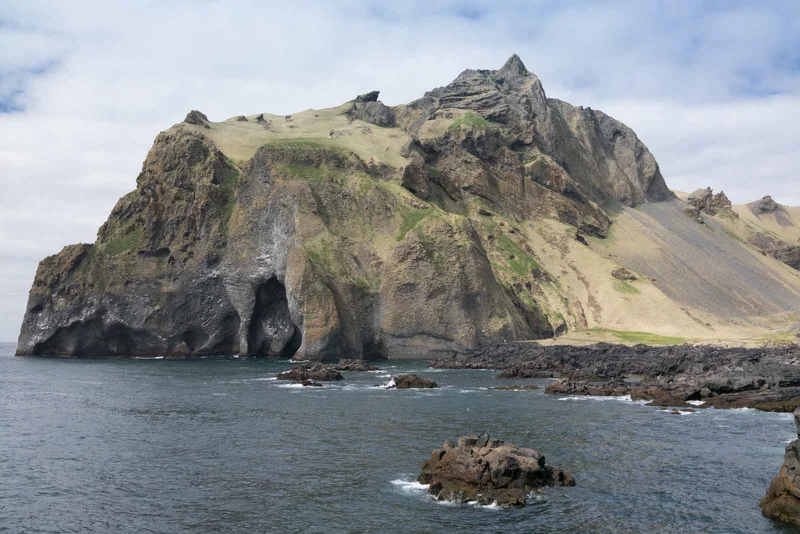
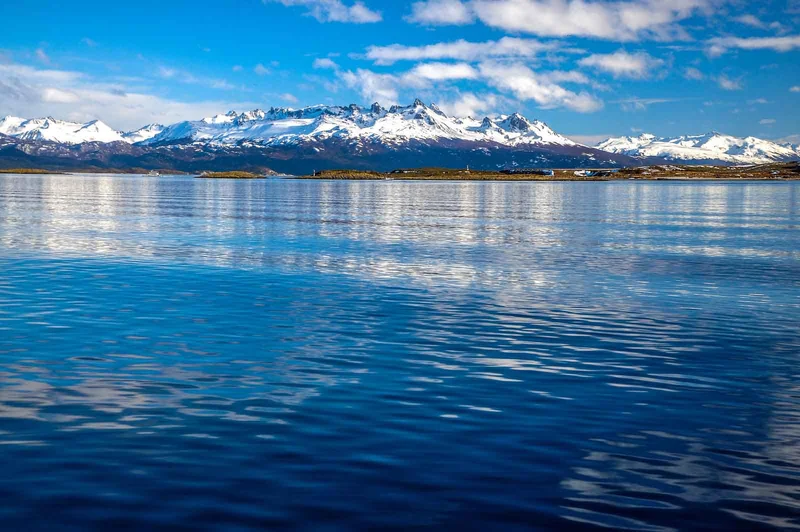
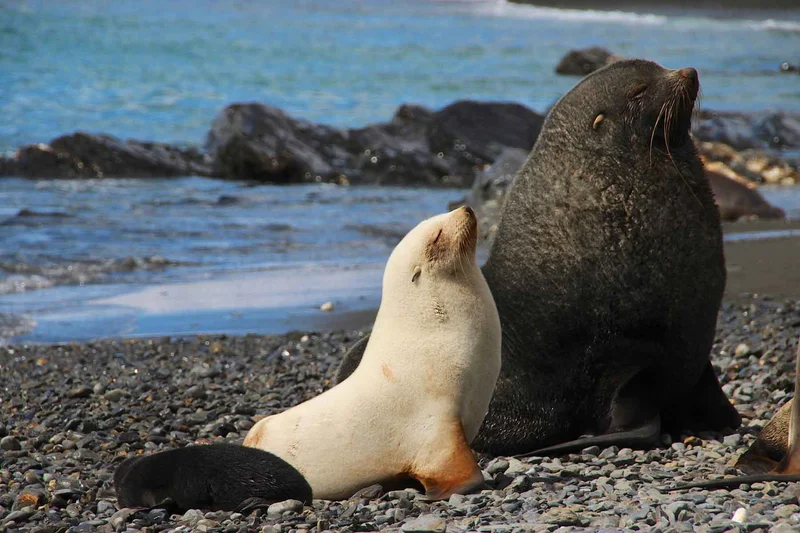
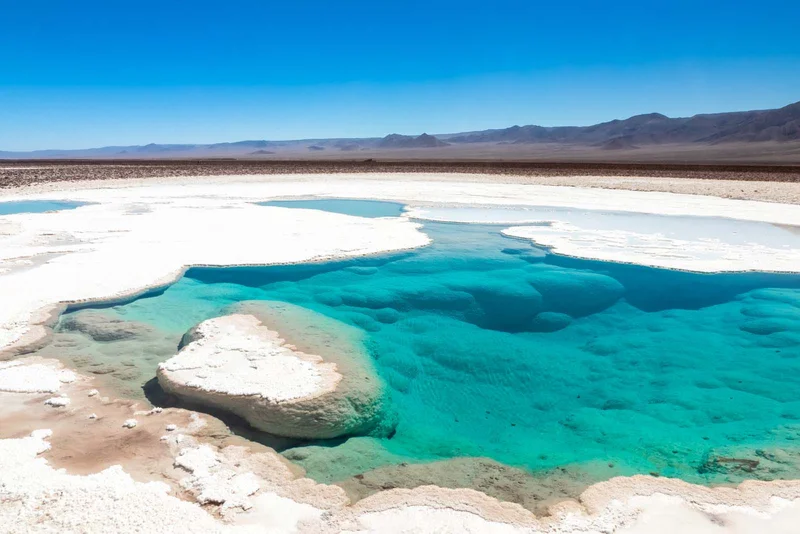
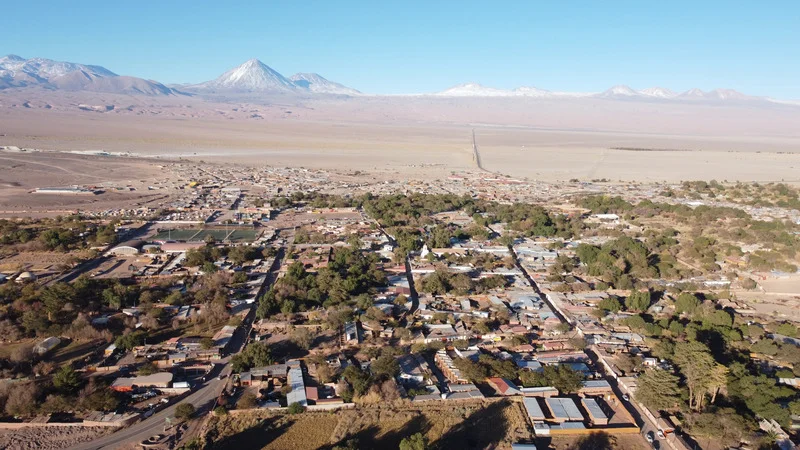
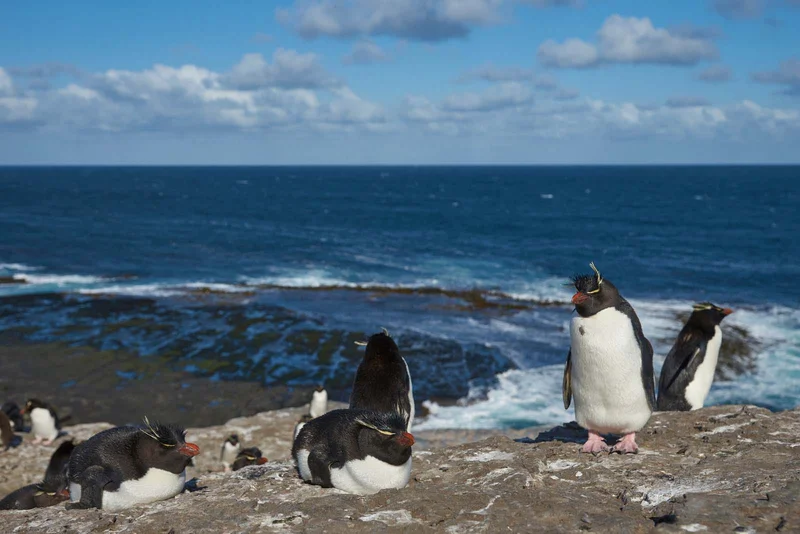
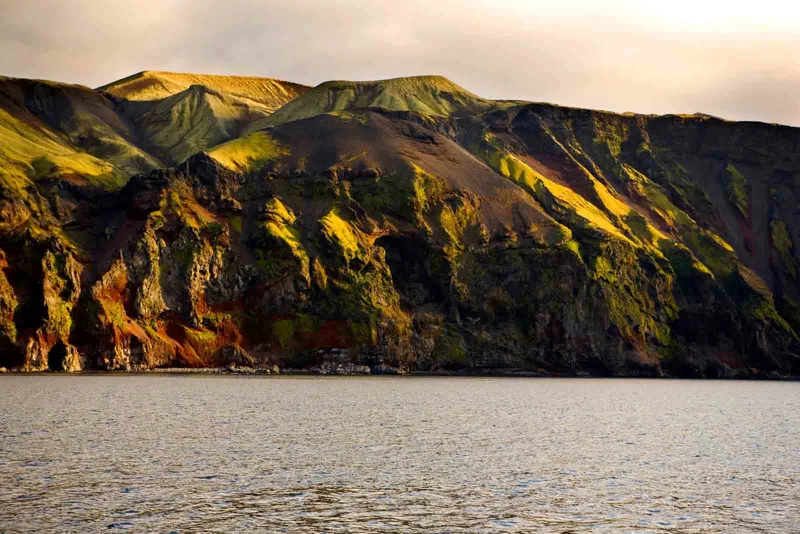
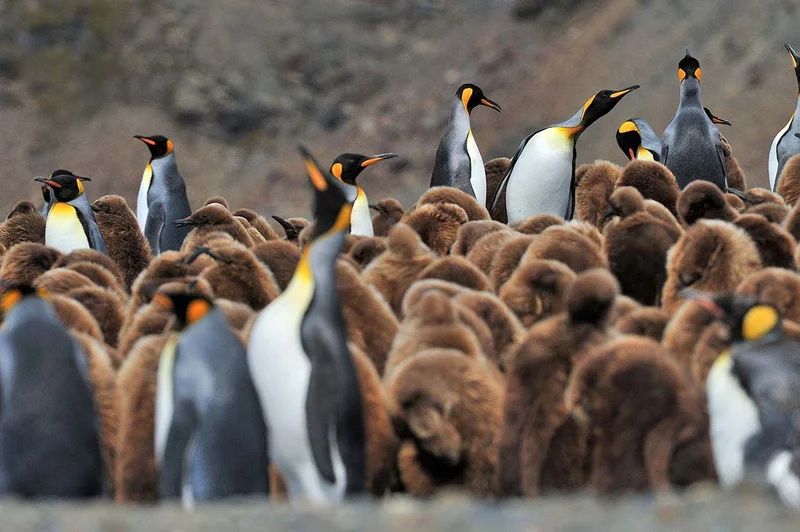
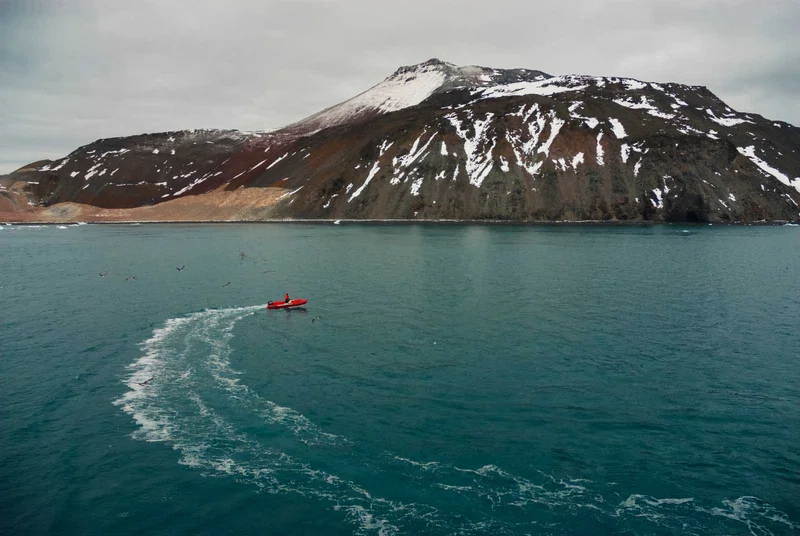
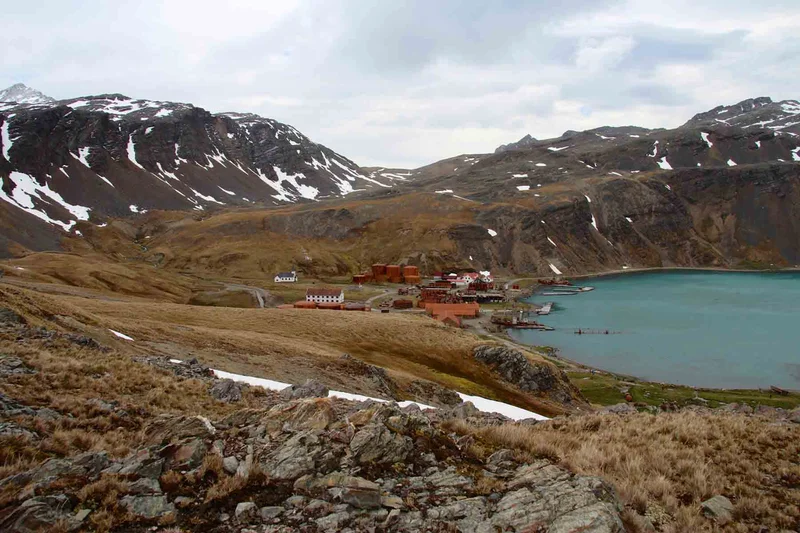
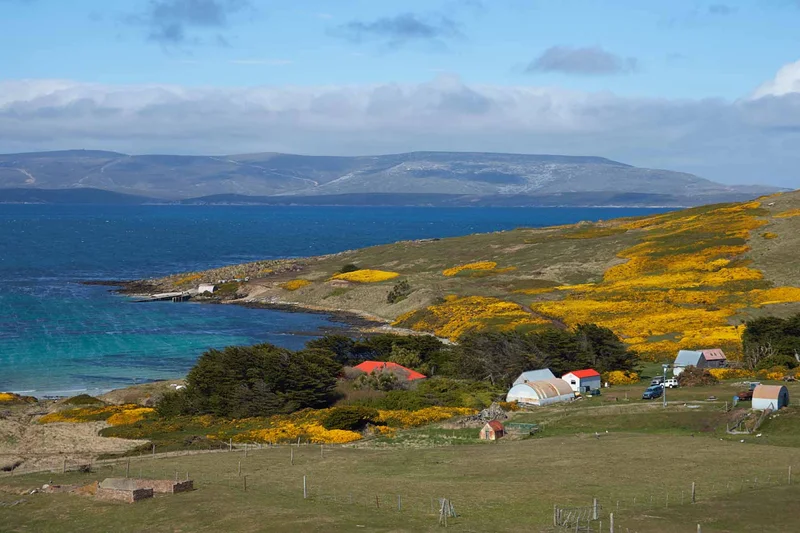
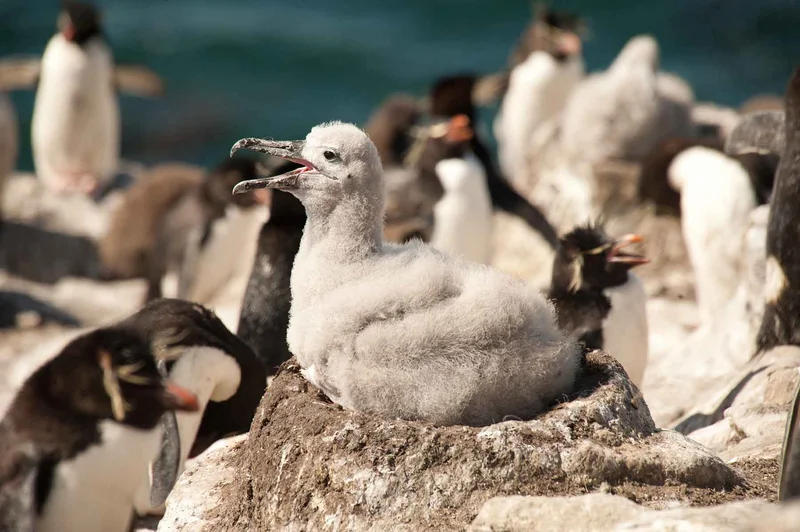
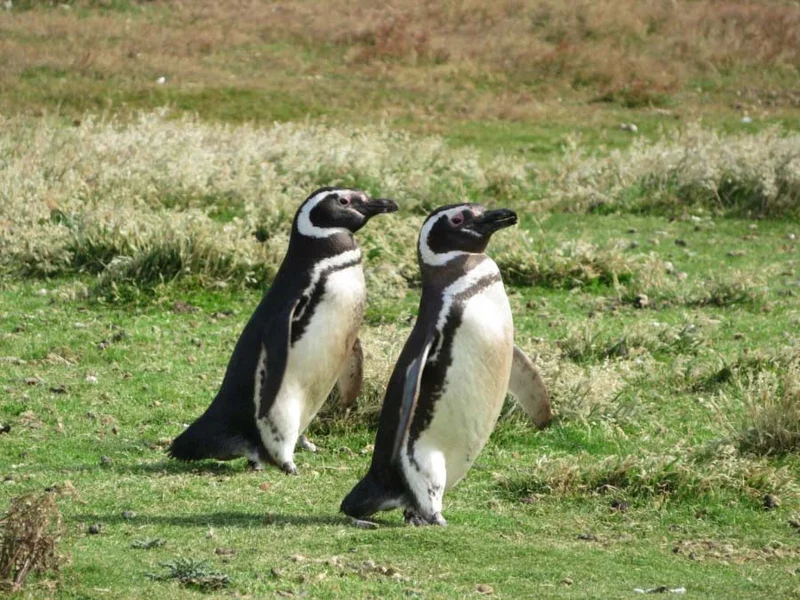
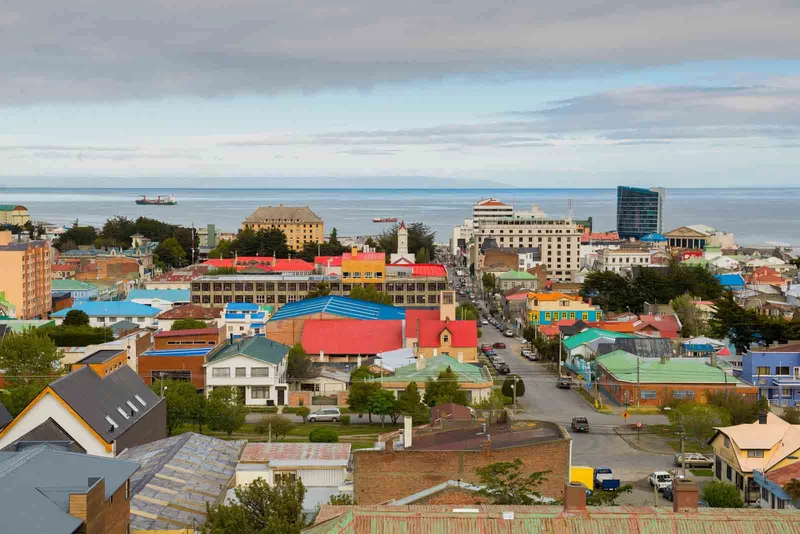
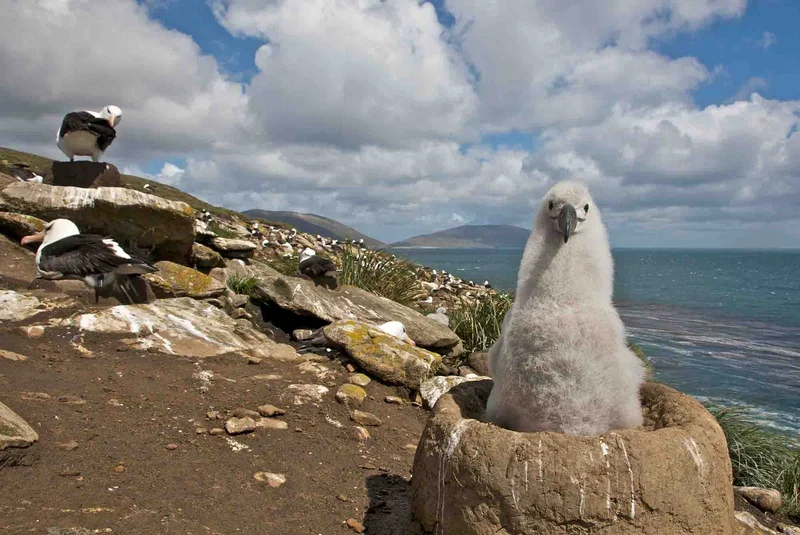
47 Day Antarctica Itinerary Highlights
- Experience Antarctica’s breathtaking landscapes
- Optional excursions to Galápagos & Machu Picchu
- Explore historic cities and rich cultures
- Navigate the legendary Panama Canal
- Witness Patagonia’s stunning ice fields
Itinerary Map
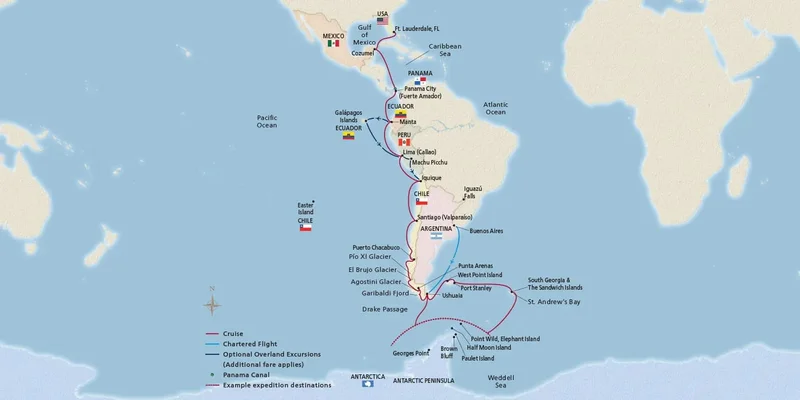
47 Day Antarctica cruise activities
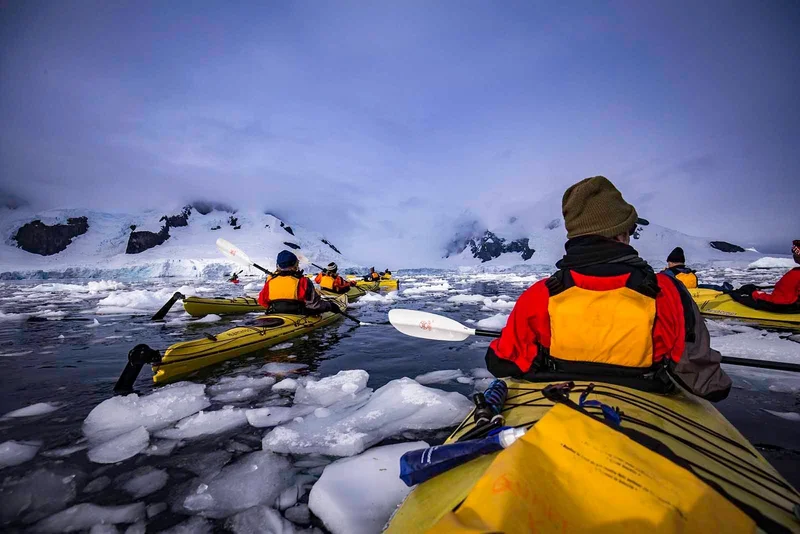
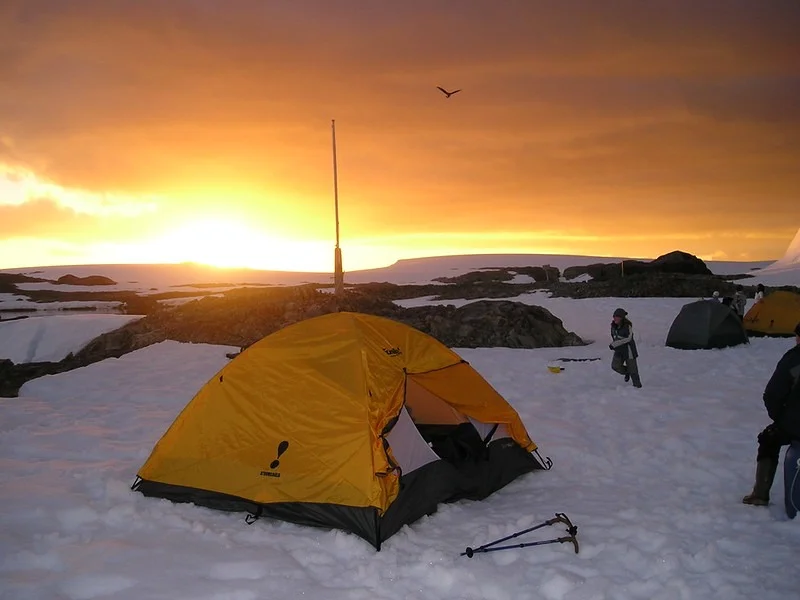
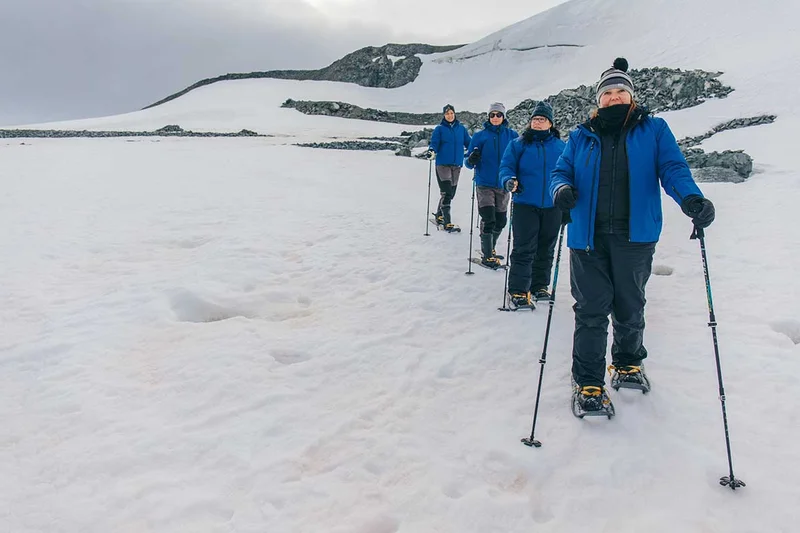
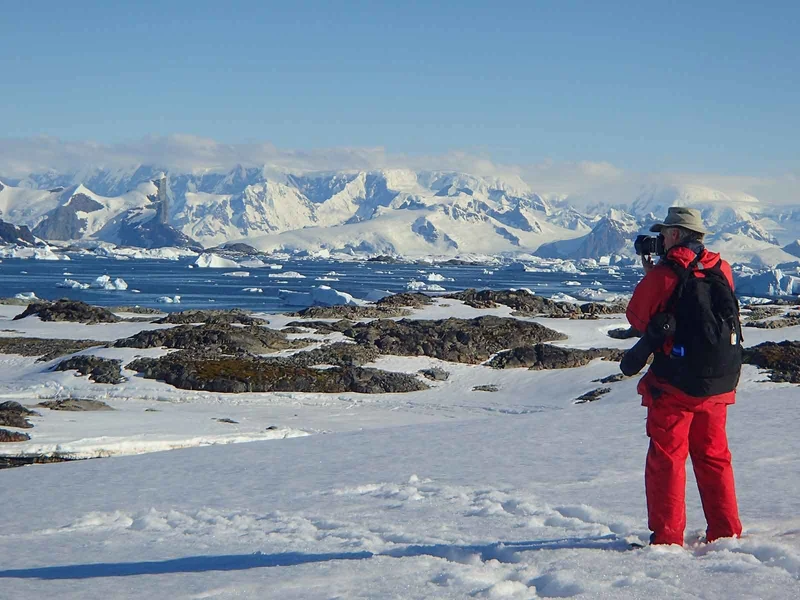
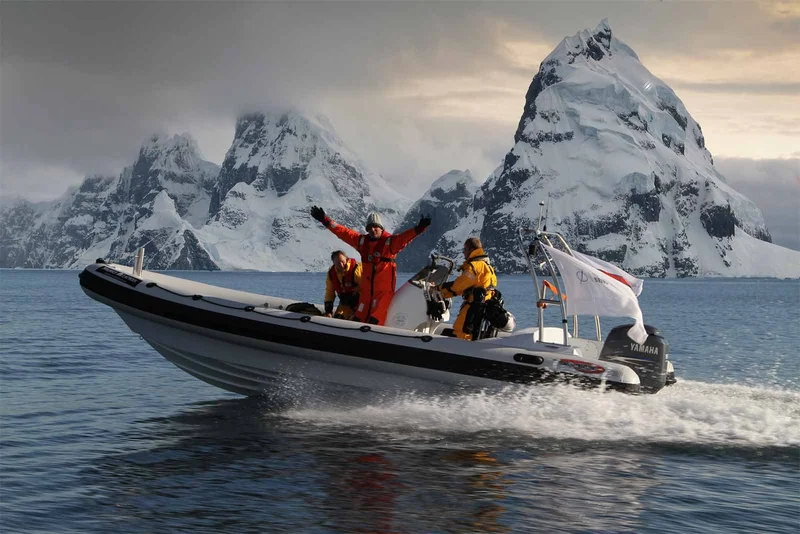

Animals you might see on this itinerary
Why travel with us?
Would you like to know why booking with us is the best choice?
Discover the BenefitsSimilar Itineraries
